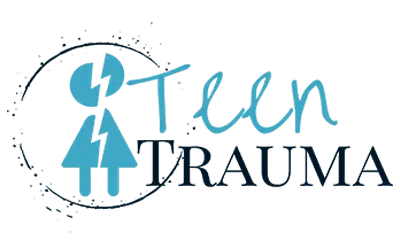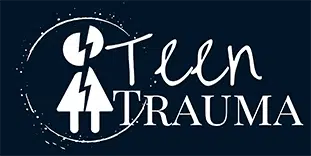
Understanding Teen Trafficking
Human trafficking inflicts severe psychological, emotional, and physical wounds on teen victims that require lifelong professional treatment and counseling. Many trafficked teens experience multiple forms of abuse that lead to long-term health problems, sexually transmitted diseases, and unwanted pregnancies.
What is Teen Trafficking?
Teen trafficking, also known as adolescent human trafficking, is a form of exploitation and a crime where teens are tricked, threatened, or forced into situations that benefit their traffickers. Importantly, transporting a teen to another location is not a necessary condition for trafficking to occur.
Many cases of teen trafficking involve exploitation by family members or traffickers who pretend to care about the teen, creating a false sense of trust, also known as grooming. Some teens who are trafficked may still live at home, suffering from hidden exploitation. This exploitation typically involves being forced into commercial sexual acts or forced labor, both of which are incredibly harmful and violate the teen’s fundamental rights and dignity.
While all trafficking cases represent the worst form of abuse that one human could do to another human, it is parental trafficking that is particularly insidious since it involves a parent or guardian trafficking their own child for money.
Child and Teen Trafficking Statistics
Estimates put the number of children trafficked worldwide each year at around one million. The largest destination for victims of sex trafficking is the U.S., with between 20,000 and 50,000 adults and children forced into the dark world of sex trafficking by mafia types, entities that operate on the Dark Web, and, unfortunately, people whose children trust the most–their parents.
Key Facts and Statistics on Teen Trafficking in the United States
Teen trafficking is a widespread crime that often goes unnoticed and unreported.
-
Age of Trafficked Children:
- Most trafficked children fall within the age range of 14 to 17 years old. These vulnerable young individuals are often targeted by traffickers.
-
Sex Trafficking vs. Forced Labor:
- Interestingly, there are more traffickers charged with sex trafficking than with forced labor. This highlights the prevalence of commercial sexual exploitation.
-
Internet as a Marketplace:
- The Internet has become a significant marketplace for child sex trafficking. Traffickers exploit online platforms to connect with potential victims and buyers.
-
Boys as Victims:
- Contrary to common perception, boys are also victims of sex trafficking. A study found that approximately 36% of sex trafficking teenage victims were boys1
Exploring the Most Common Types of Human Trafficking
The Hidden Crisis of Familial Sex Trafficking: Betrayal by the Ones You Trust
When a child or teen is forced to engage in sexually explicit or exploitative acts by a parent, sibling, grandparent, or other biological relative, that type of trafficking is called parental or familial trafficking. Research indicates that nearly 50 percent of all child trafficking cases globally are initiated by a family member whom the child knows and trusts. Scroll down for more on this topic.
Child Labor Trafficking
Labor trafficking of children happens in both developed and underdeveloped countries. Noncommittal governments can certainly worsen the situation, but the problem is more widespread. Children are forced to labor in horrible conditions, often involving long hours, dangerous equipment, and little or no pay. This constitutes a clear form of child slavery and servitude.
Industries that often benefit from child trafficking include hospitality and tourism, which can be venues for sex trafficking. Additionally, the domestic service industry employs nannies, housekeepers, and caretakers, where exploitation can occur in private settings. Health and beauty services, such as salons and massage parlors, are also known for exploiting young people behind closed doors.
Coercion and Conflict: Trafficking Child Soldiers
Children of all ages are abducted or sold by parents to participate in armed conflicts in sub-Saharan Africa and Southeast Asia. Children as young as four have been found serving as spies, soldiers, and messengers in ongoing civil wars.
Similarly, in neighborhoods with high gang and crime activity in the United States, children are often coerced into joining gangs. In these settings, they are exploited and controlled, forced to engage in criminal activities that mirror the involuntary servitude of child soldiers.
This form of coercion, where children are manipulated and threatened for the financial gain of others, shares troubling similarities with child trafficking and slavery. The enduring trauma from such exploitation deeply affects their mental health, mirroring the severe psychological impacts seen in trafficking survivors. These children often suffer from PTSD, depression, and anxiety, struggles that can persist long into adulthood and hinder their ability to lead fulfilling lives.”
Forced Child Marriage Trafficking
When underage girls are forced into marriages without their consent to much older men, it is frequently the parent or other relative of the child that sells the girl into a child marriage. Operators of child marriage trafficking “rings” kidnap girls living on the street and sell them for marriage purposes because they know nobody will report the girls missing.
Trafficked children may also be forced to beg for money by an adult who threatens the child with physical violence if they don’t bring them a certain amount of money every day. In poor countries where economic conditions are dismal, human traffickers deliberately abduct and exploit children to beg for change on the street, since people are more likely to give children money instead of adults.
What Motivates Parents to Sell Their Children to Traffickers for Sexual Exploitation
The act of selling a child into sex trafficking is heinous and revolting. It is a crime that should be prosecuted to the fullest extent of the law. What may be worse than a sex trafficker exploiting children they may have never even met is the sex trafficker who is the parent of that child.
Experts cite numerous factors that increase the risk of a parent or guardian forcing their child to commit commercial sexual exploitation acts. In no way should these reasons justify or excuse such horrendous behavior.
The primary reason parents traffic their children involves greed. Many people experience financial difficulties or extreme poverty, but they do not sell their children for sexual exploitation by another person.
However, when a parent’s financial situation is compounded by other difficulties in their lives, or the parent suffers from an untreated mental illness or personality disorder, the financial rewards of child sex trafficking extinguish any sense of empathy or love they may have once had for their child.
Other factors increasing the risk of familial trafficking of children include parents struggling with substance addiction, parents who were physically and sexually abused as children, and a parent having a severe sociopathic personality disorder that makes them incapable of feeling empathy.
Parents who have no moral or ethical filters may see nothing wrong with taking pictures of their nude five-year-old son or daughter and selling them to pedophiles on the Deep Web for substantial financial gain.
Recognizing Signs of Exploitation Abuse: Identifying a Trafficked and Abused Teenager
What are the Signs and Symptoms of Child Trafficking?
Recognizing the teen victims of familial sex trafficking is difficult since many signs and indicators mimic mental and emotional disorders. Trafficking warning signs include sudden changes in behavior, evidence of physical abuse, poor hygiene, school truancy, and appearing detached and disassociated when interacting with others may be signs that a child is being exploited.
When teens are involved in parental trafficking, the parent or relative who is trafficking the teen may always remain close to the teen, controlling where they go, who they see, how they dress, and so on. The trafficker may isolate the teen from other members of the family, pretending to “care” about the teen’s well-being and safety.
The trafficker often manipulates their young victims by giving them expensive presents–clothes, cellphones, small amounts of cash–to prevent them from disclosing their exploitation to others.
Parents who receive money, drugs, or a place to stay in exchange for handing their child over to a pedophile often tell their child that there’s nothing wrong with what they are doing and that “if you loved me, you would do this so we have a place to stay and food to eat”.

Psychological Trauma and the Lasting Effects of Parental Trafficking
Addressing the Long-term Consequences of Parental Trafficking
Providing help for trafficked teens is essential to their recovery journey. The road to recovery is undeniably challenging and different for everyone. Teens rescued from child sex trafficking usually experience worsening symptoms of psychological issues they developed while being trafficked.
Counseling for trafficking survivors is a critical component of the healing process. Specialized therapeutic interventions like residential treatment centers providing a holistic approach that addresses both the physical and psychological wounds for victims of human trafficking. Often proven to be the most helpful therapeutic program for these brave young people.
Not only do they get 24/7 therapeutic interventions, they get a sense of community and normalcy while also getting treatment for PTSD, severe depression and anxiety disorders, substance addiction, and cognitive impairments offer victims a safe, structured environment in which to begin healing.
Aftercare for victims of human traffickers should include assistance with reintegrating into society, access to educational resources, help with financial instability, and continuing trauma therapy with counselors who specialize in treating familial sex trafficking victims.
Conclusion: The Path Forward for All Teens Affected by Trafficking
As we reflect on the devastating realities of human trafficking, it’s important to acknowledge that this heinous crime does not discriminate. Both boys and girls are tragically ensnared in its grasp. The impact of trafficking on teenagers is profound, leaving scars that can last a lifetime. Yet, amidst this darkness, there is a ray of hope. With the right support, resources, and compassionate care, healing is possible.
Let us remember that every teen affected by trafficking is someone’s child, friend or classmate. They deserve our compassion, our action, and our commitment to ending this cycle of abuse. By standing together against human trafficking, we not only protect our children.
We also honor the resilience and strength of those who have survived. Together, we can forge a future where every teen is safe, respected, and free to pursue their dreams. Gender won’t matter.
For more information and access to teen trafficking support services, please visit:
Girls Educational & Mentoring Services (GEMS)
-
- Services Offered: GEMS is dedicated to empowering young women, ages 12-24, who have experienced commercial sexual exploitation and domestic trafficking. The organization provides training and technical assistance to agencies and institutions across the U.S. that work with at-risk youth, victims, and survivors of domestic trafficking and commercial sexual exploitation. Their services include educational initiatives, court advocacy, holistic case management, and transitional & supportive housing. Website: GEMS
Sanctuary for Families
-
- Services Offered: Sanctuary for Families offers a comprehensive range of resources for survivors of human trafficking and youth at risk of commercial sexual exploitation. They provide client-centered, trauma-informed legal, clinical, and support services aimed at self-empowerment, restoring a sense of self, and rebuilding lives free from violence. Their services include case management, counseling, legal services, and specialized programming for youth ages 11-18 focusing on homeless, foster care, LGBTQ+, and system-impacted youth. The EMPOWER Center, part of their offerings, provides a range of services including medical, mental health, legal, counseling, and employment services. Website: Sanctuary for Families









